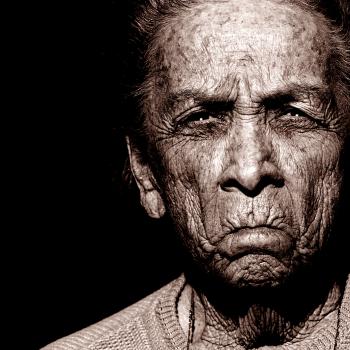Nicholas C. DiDonato
Despite the stereotype that conservatives couldn’t care less about the poor, research in the last decade indicates that they actually donate more to charities than political liberals (in America at least). This result has led some scholars to believe that political conservatism correlates with generosity. However, as sociologists Brandon Vaidyanathan, Christian Smith (both University of Notre Dame), and Jonathan Hill (Calvin College) argue, once religion factors into the equation, religion completely accounts for the political difference. That is, religiosity, not political conservatism, correlates with generosity.
To explain this correlation, the researchers reject the idea of charity deriving from religious beliefs. They find little evidence to support a causal relationship between behavior and ideology. Just because someone believes something, hardly means they act in accord with those beliefs (put simply: hypocrites exist).
Instead, “practical consciousness” explains the correlation. That is, practiced actions over time develop into habits which in turn make that action more likely to happen again in the future. Current practice shapes future action. In this framework, a religious institution, such as a church, provides an environment where its members donate on a regular basis (whether it be time or money). Very often, members make their needs publicly known, and so giving has a personal face attached to it. Such personal intimacy strongly encourages giving.
Since giving in a religious setting occurs on a regular basis, the habit of giving can develop quite readily. This contrasts with secular giving, which tends to occur on a case-by-case basis. The researchers hypothesize that once a person has developed the habit of charity in a religious setting, that habit easily translates into charities outside of religion (including giving to strictly secular charities). Consequently, they predict that political liberals who regularly attend religious services will behave like conservatives when it comes to charity.
To test their hypothesis, the sociologists analyzed the data from the first wave of the Panel Study on American Ethnicity and Religion (PS-ARE). Specifically, they examined the amount of donations made to one’s local church, religious charities, and secular charities. They took into consideration political affiliation, religious service attendance, religious ideology (i.e., on a scale of conservative and liberal), importance of religious faith, and the general tendency to join political or community activities. They also controlled for gender, race, education, region, age, work status, marital status, household size, and health.
As expected, the statistical significance of political conservatives giving more to charity than political liberals disappears as soon as religious attendance weighs in. To put the effect of religious attendance into perspective: “…the effect of religious service attendance [for giving to religious organizations] is approximately eight times greater than the effect of political activity and nearly 11 times greater than the effect of frequently attending local civic or educational meetings.” In other words, attending religious services matters for giving to religious organizations.
But what about secular organizations? Those who attend community meetings (and those involved in certain political activities) show a strong positive correlation with giving to secular charities. Interestingly enough, so does religious attendance. Both religious attendants and attendants of community meetings display increased giving to secular organizations. That said, the higher one ranked “importance of faith,” the less one gave to secular charities (religious ideology had no statistically significant effect).
Overall, the main difference in charity consists in religious giving. People who regularly attend religious services give more to religious and secular charities, while those who get a regular dose of “practical consciousness” from a secular environment give more to only secular charities. Put another way, religious people give as much to secular charities as practically conscious secular people plus they give to religious charities. In terms of amount, religious people wind up giving more. From this the researchers conclude that religious organizations imbue a habit of charity that readily transfers to other charitable organizations.
The researchers quickly point out the impossibility of establishing the causal order—what is causing what? While their results prove statistically significant, they only show correlation not causation. Furthermore, certain political activists showed a great increase in charity to secular organizations compared to religious givers—some do outperform religious people in secular giving. Still, given their general high rates of giving, it would not be unfair to say that, at least in terms of charity, religious people practice what they preach.
For more, see ”Religion and Charitable Financial Giving to Religious and Secular Causes: Does Political Ideology Matter?” in the Journal for the Scientific Study of Religion.












